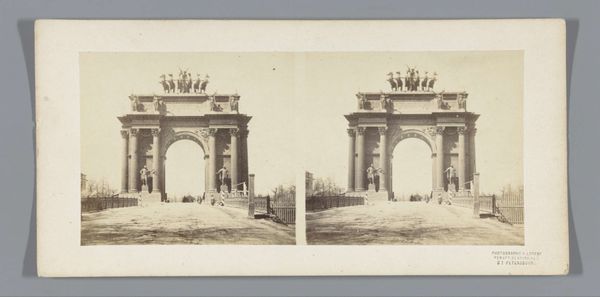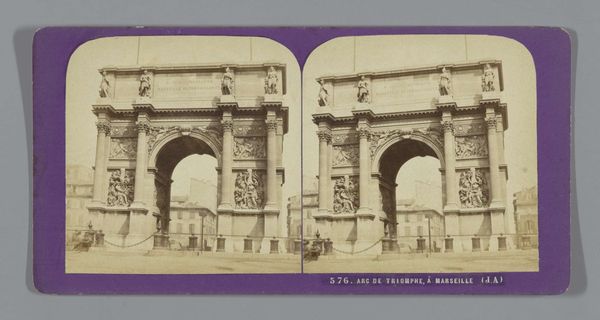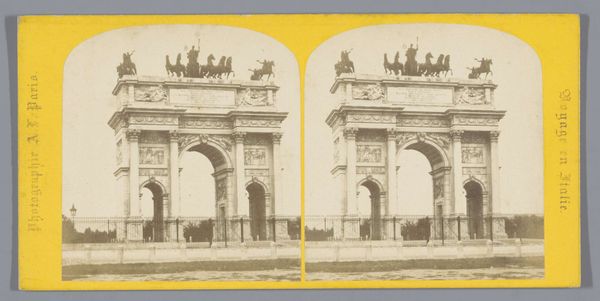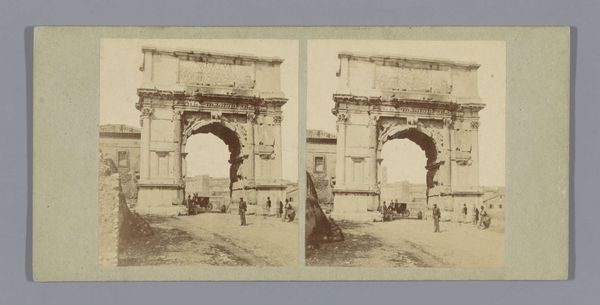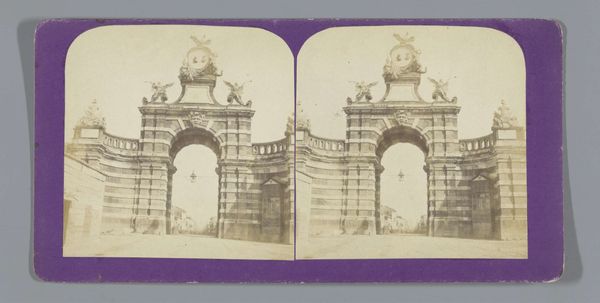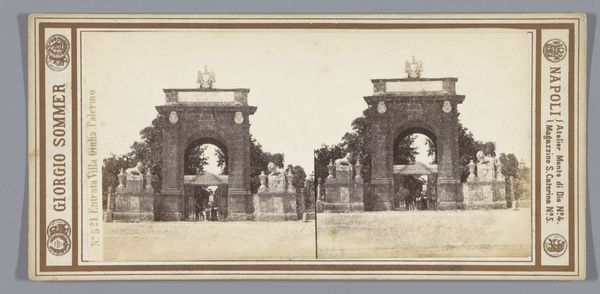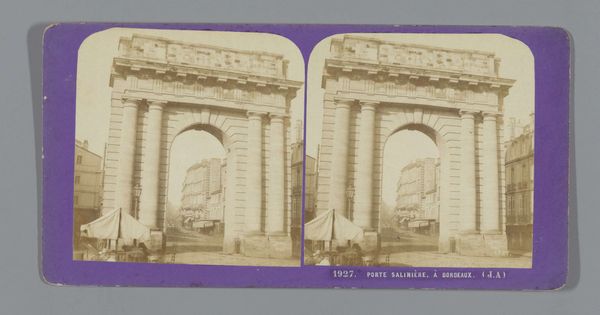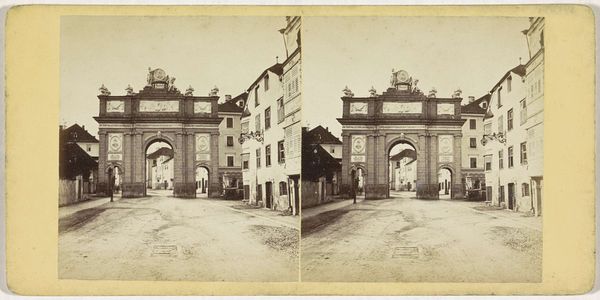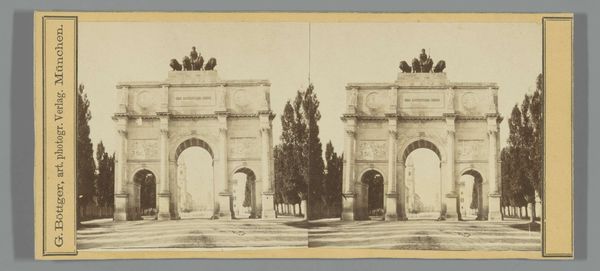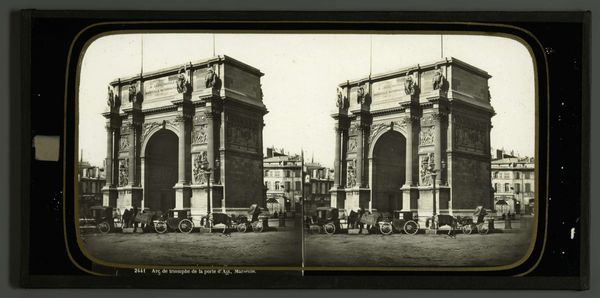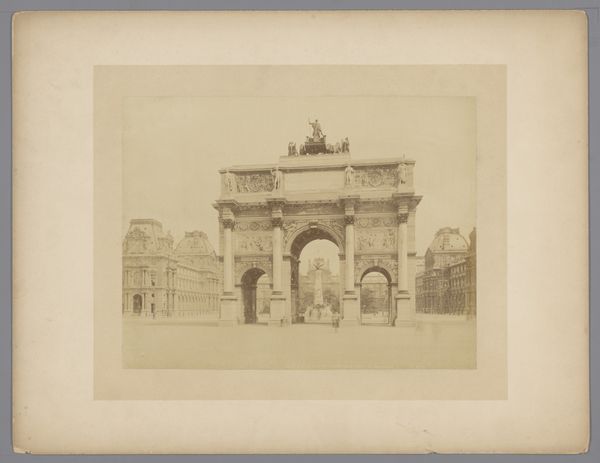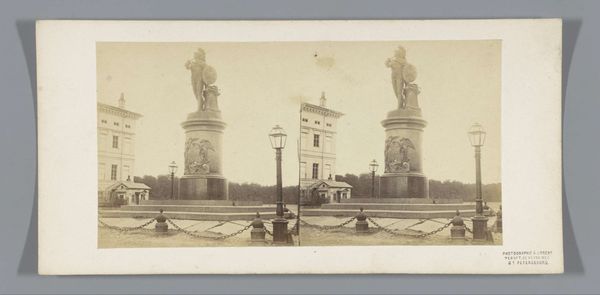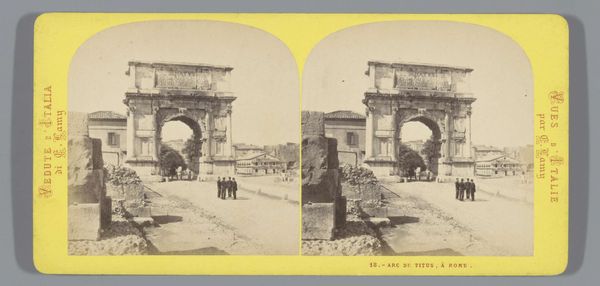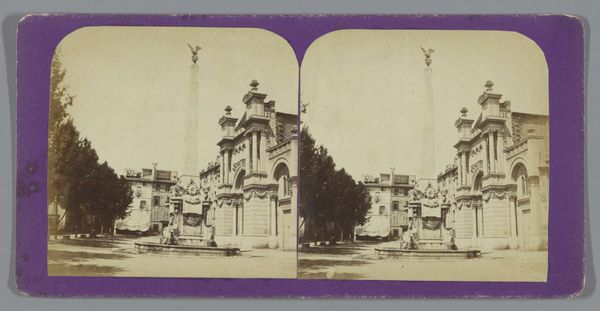
print, daguerreotype, photography, architecture
# print
#
daguerreotype
#
historic architecture
#
traditional architecture
#
photography
#
architecture
#
historical building
#
building
Dimensions: height 85 mm, width 170 mm
Copyright: Rijks Museum: Open Domain
Editor: This daguerreotype by Jean Andrieu, "Gezicht op de Toledopoort te Madrid," dated between 1862 and 1876, has this really intriguing muted tone. It presents this grand architectural structure, but I’m drawn to the figures that are subtly placed along the sides and just inside the gate. How do you interpret this work, especially considering its symbols? Curator: The gate itself is a potent symbol – thresholds always are. But this isn’t just any gate; it's the Puerta de Toledo, a triumphal arch. Think about what that evokes: victory, power, the state entering and exiting, right? It marked a ceremonial entrance into Madrid. How do the figures change this grand narrative? Editor: It makes it seem more human-scaled and relatable. Like everyday life is moving in and through that display of power. Almost like it is blending in over time. Curator: Exactly. And consider what else a gate symbolizes, or implies. What happens behind a wall? And what is deliberately put on display and memorialized on the entry to a city? What continuities might Andrieu be referencing, and what might he deliberately omit? Consider, too, the chariot atop – who rides, and who is being pulled? Editor: So the gate isn't just a pretty picture; it speaks to Madrid’s identity, power dynamics, and historical memory. It shows us the symbolic weight of the door but the humanity that constantly challenges those assertions. Curator: Precisely! Even its very photographic rendering in sepia tones becomes part of the image’s enduring symbolic power – a frozen moment in time, reminding us that history, like a photograph, is always both a capture and a construction.
Comments
No comments
Be the first to comment and join the conversation on the ultimate creative platform.
